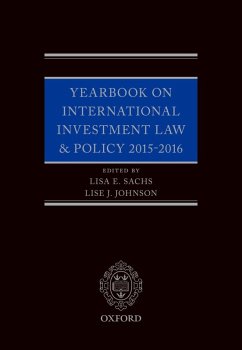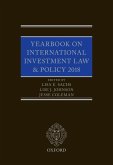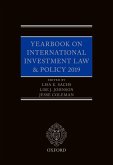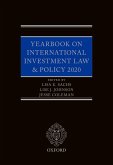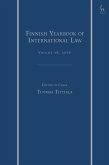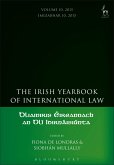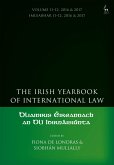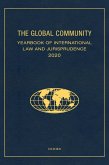The Yearbook on International Investment Law & Policy is an annual publication which provides a comprehensive overview of current developments in the international investment law and policy field, focusing on recent trends and issues in foreign direct investment (FDI), investment treaty practice, and investor-state arbitration. Several themes emerge in this 2015-2016 edition of the Yearbook. Key among them is the undercurrent of change and evolution in investment law and policy, as well as that of investment trends. Part I of this edition covers fundamental shifts in the investment treaty landscape in 2015 and 2016, underscoring the uncertainty over the direction of future agreements. This edition also highlights changes in the practices of multinational enterprises over time and raises question as to whether efforts to track and understand firms' investments through data on FDI have kept pace. The discussion of investment arbitration decisions and awards highlights outcomes which, in some cases, suggest new directions of arbitral decisions. This theme continues in Part II. Chapters highlight emerging understandings regarding outcomes of treaty disputes, and the ways in which treaties and decisions are shaping government decision-making. There is discussion on how change in international business, including the fragmentation of production and consumption in global value chains, is or is not reflected in the design and application of investment treaties. There is also coverage of change in China, both in terms of China's legal status as a (non)market economy under WTO law, and in how arbitrators have arguably altered longstanding Chinese policies regarding the territorial reach of Chinese treaties. This edition also reflects a maturation of investment law, as new analysis highlights the importance of nuance in commonly stated conclusions and principles. Chapters ask "what does and should 'equality of the parties' mean in investment law?", especially when disparate access to resources and information seems to tilt the playing field. Other chapters investigate the implications of the fact that states, considered as one entity for the purpose of responsibility at the international level, often are made up of different relatively autonomous units. Edited by an Editorial Committee and overseen by an Advisory Board of esteemed global experts in the field of international investment law, the Yearbook is an essential tool for practitioners and academics looking for a resource of timely and authoritative information in this field.
Dieser Download kann aus rechtlichen Gründen nur mit Rechnungsadresse in A, B, BG, CY, CZ, D, DK, EW, E, FIN, F, GR, HR, H, IRL, I, LT, L, LR, M, NL, PL, P, R, S, SLO, SK ausgeliefert werden.

